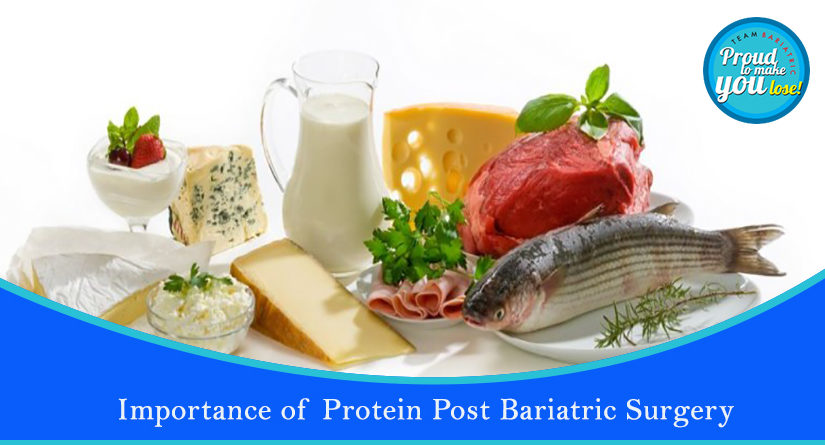The Power of Protein: Essential Post-Bariatric Surgery Nutrition for Optimal Weight Loss
Protein is practically a component in each cell of our body. It is known for their ability to build and repair our tissues. Along with carbohydrates and fats, protein is also called a MACRONUTRIENT, which means the body needs a large amount of it for daily wear-and-tear activities. In your first consult with Team Bariatric, you are made familiar with the diet post-weight loss surgery, and the importance of protein is explained as a top priority.
A meal rich in protein and low in carbohydrates will help you lose weight faster, as protein makes the digestive system work harder to metabolise and digest the food. In simple words, you will burn more calories when you consume proteins.
What is your protein requirement?
Generally as per the RDA, an adult needs 50-60 grams of protein per day, but these recommendations change post your surgery. ASMBS recommends 60- 90g of protein daily, depending on their medical conditions, type of surgery, and activity level.
5 Best Sources of Protein Post-Bariatric Surgery
Meat and Poultry
This group is one of the most generous sources of proteins for you. 1 serving of 30 grams would give you approximately 7 grams of high biological value protein, which is easy to absorb by the body, and good news it is nearly free from carbohydrates. Choose only lean meats and don’t forget to remove the skin and fat.
Fish
Fish has been known to be the best source of not just protein, but also omega-3 fatty acids. 30 grams of fish would give you roughly 7 grams of protein and a good dose of healthy fats. Try flaky fish, including tuna, tilapia, or salmon.
Egg
Egg is my favorite and most versatile ingredient. One serving equals one egg or two egg whites, which gives you roughly 7 grams of proteins. Prepare eggs without added fat by using a nonstick pan. Make an omelet or scrambled eggs of whole eggs or egg whites with spinach, onions, cheese, or chicken for added nutrition.
Legumes
Dried pulses and peas, provide about 7 grams of protein in one cup. Add kidney beans (Rajmah) or chickpeas (white channa) or Black Channa to your salad or mix brown rice with peas. A mixture of rice and pulses becomes a source of complete protein. Soy and its products are another great source of protein for you.
Milk and Its Product
Dairy provides you with both calcium and protein, but choose the nonfat or low-fat options to avoid consuming too many calories. One cup of skim milk gives 8 grams of protein. Low-fat plain yogurt or curd is very good for maintaining the healthy bacteria’s in the gut and drinks made using it can be great to meet your protein and water requirements of the day. Buttermilk is your best bet. Paneer or low-fat cottage cheese can be used very flexibly.
Along with the above food items it is always recommended to include a high-quality low-calorie protein powder in your daily diet to help you meet your protein requirement.
Conclusion
It is best to discuss your protein requirements and options with your bariatric dietitian. They will help you plan your meals so that you can get the best result from your weight loss surgery. It is a very vital step towards a “new you”.
Good Luck






